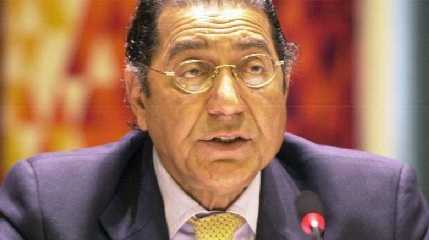
UNITED NATIONS, Jul 13 (APP): The General Assembly Tuesday decided that intergovernmental negotiations (IGN) on enlarging the UN Security Council will continue during its upcoming 77th session, with the 193-member body’s President , Abdulla Shahid, saying that the negotiating process this year has made progress towards agreement on reforming the 15-member Council.
“We have made progress this year. This is clear,” Shahid said, ahead of the unanimous adoption of a draft oral decision to rollover the IGN process to upcoming session that begins in September this year.
Pakistan’s UN Ambassador Munir Akram concurred with Assembly president’s assessment about the progress achieved.
“We agreed that the areas of convergence have been broadened, and divergences have been further reduced through the IGN process this year,” he added.
Full-scale negotiations to reform the Security Council began in the General Assembly in February 2009 on five key areas, the categories of membership, the question of veto, regional representation, size of an enlarged Security Council, and working methods of the council and its relationship with the General Assembly.
Despite a general agreement on enlarging the Council, as part of the UN reform process, member states remain divided over the details.
The so-called Group of Four — India, Brazil, Germany and Japan — who seek for themselves permanent seats on the Council have shown no flexibility in their push for expanding the Council by 10 seats, with six additional permanent and four non-permanent members.
On the other hand, the Italy/Pakistan-led Uniting for Consensus (UfC) group, which firmly opposes additional permanent members, has proposed a new category of members — not permanent members — with longer duration in terms and a possibility to get re-elected.
The Security Council is currently composed of five permanent members — Britain, China, France, Russia and the United States — and 10 non-permanent members elected to serve for two years.
In his remarks, Ambassador Akram said that slow pace of progress in Security Council reform “is not due to any deficiency in the procedure or process; it is due to the inflexible position adopted by a few individual States which have come into the negotiations with the pre-determined goal of fulfilling this ambition to become new permanent members of the Security Council, regardless of the principles of sovereign equality.”
In contrast, he said the UfC has demonstrated the greatest flexibility in these negotiations and shown its willingness to explore imaginative ways to reconcile divergent positions.
The Pakistani envoy said the UfC looks forward to continuing its constructive participation in the IGN process at the next session in order to further broaden the areas of convergence and narrow the areas of divergence.
“We hope all Member States and groups will demonstrate similar flexibility. If so, we can reach agreement on Security Council reform in the near future,” he said.
However, Ambassador Akram expressed surprise at the reference in the Assembly president’s letter forwarding the draft decision, “encouraging” Member States to move gradually towards “text-based negotiations”, saying that this advice is gratuitous; it does not reflect the consensus or even a majority sentiment within the UN membership.
“It is beyond the PGA’s (president of General Assembly) mandate to convey such advice,” he added.
” We see this only as an expression of your personal view which has no bearing on the continuing work of the IGN,” Ambassador Akram said in remarks aimed at Abdulla Shahid, who is from Maldives .
“Any precipitate move to move to so-called ‘text-based negotiations’ will lock in positions and accentuate differences and freeze, if not reverse the progress we have made in expanding areas of convergence.”




